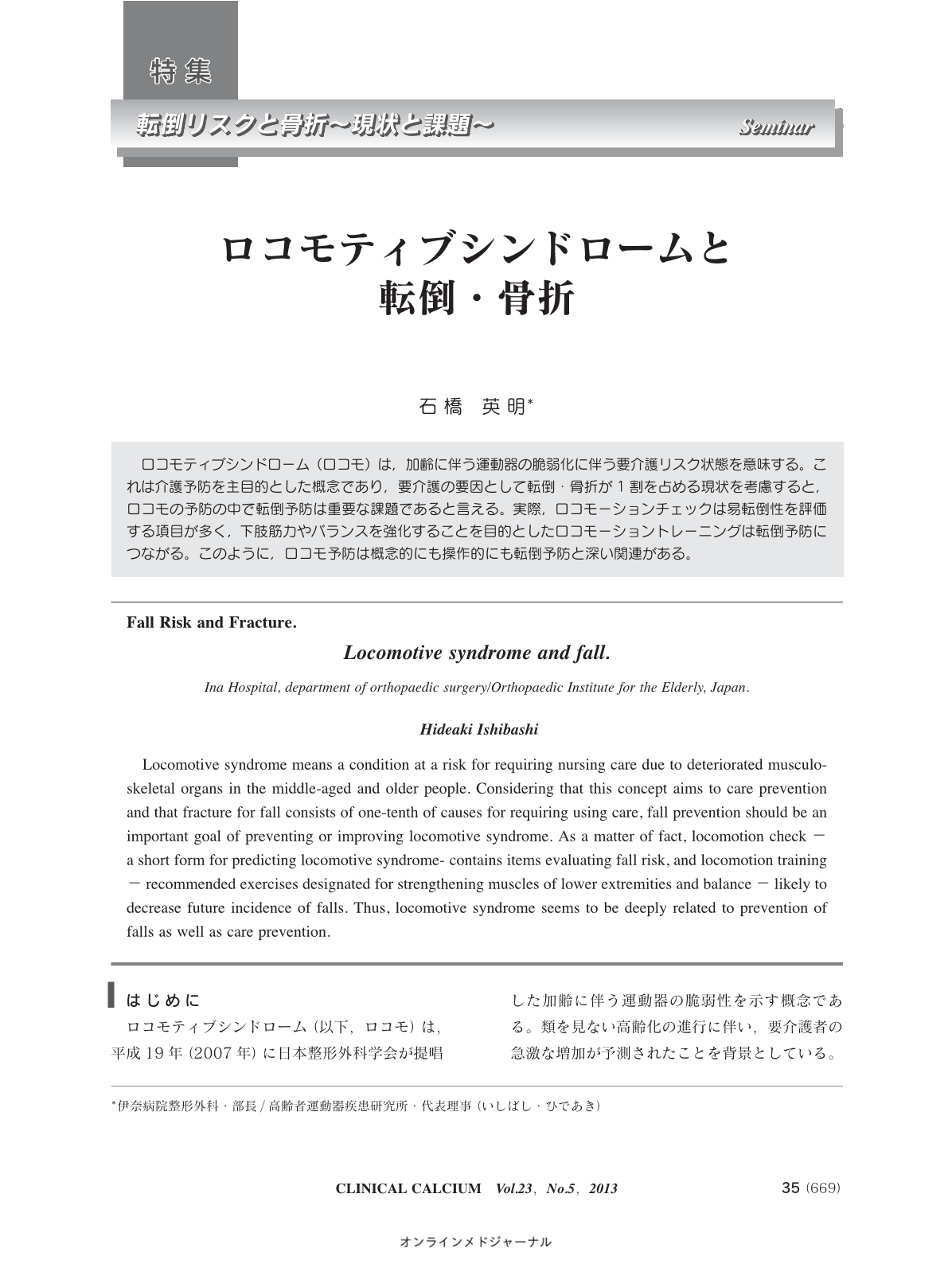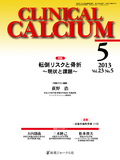Japanese
English
- 有料閲覧
- Abstract 文献概要
- 1ページ目 Look Inside
- 参考文献 Reference
ロコモティブシンドローム(ロコモ)は,加齢に伴う運動器の脆弱化に伴う要介護リスク状態を意味する。これは介護予防を主目的とした概念であり,要介護の要因として転倒・骨折が1割を占める現状を考慮すると,ロコモの予防の中で転倒予防は重要な課題であると言える。実際,ロコモーションチェックは易転倒性を評価する項目が多く,下肢筋力やバランスを強化することを目的としたロコモーショントレーニングは転倒予防につながる。このように,ロコモ予防は概念的にも操作的にも転倒予防と深い関連がある。
Locomotive syndrome means a condition at a risk for requiring nursing care due to deteriorated musculoskeletal organs in the middle-aged and older people. Considering that this concept aims to care prevention and that fracture for fall consists of one-tenth of causes for requiring using care, fall prevention should be an important goal of preventing or improving locomotive syndrome. As a matter of fact, locomotion check-a short form for predicting locomotive syndrome- contains items evaluating fall risk, and locomotion training-recommended exercises designated for strengthening muscles of lower extremities and balance-likely to decrease future incidence of falls. Thus, locomotive syndrome seems to be deeply related to prevention of falls as well as care prevention.



